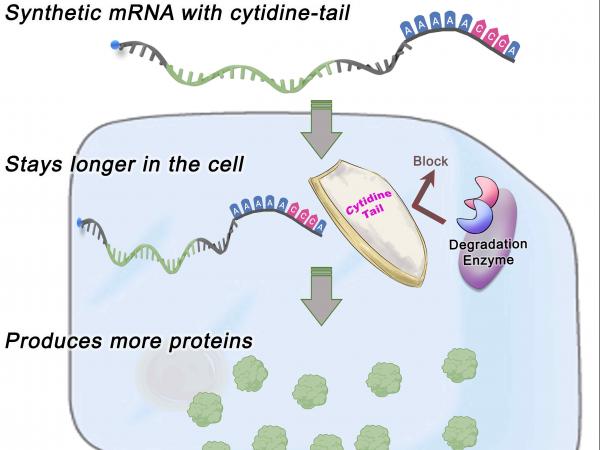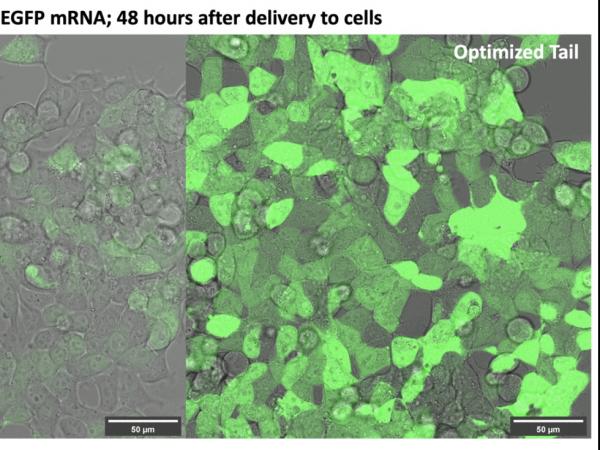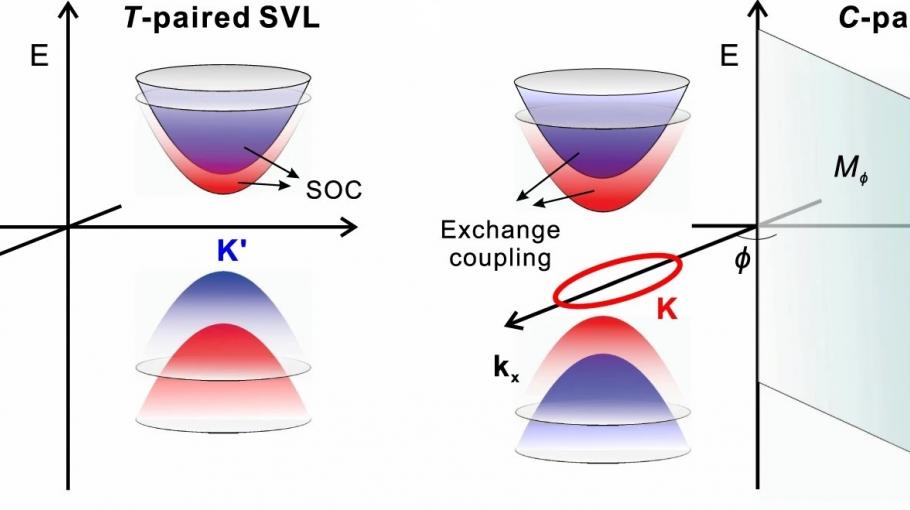A team of synthetic biologists at the Hong Kong University of Science and Technology (HKUST) has recently discovered a way that could increase synthetic mRNA’s protein production efficiency by up to 10 times, which means the effectiveness of mRNA vaccines and drugs – such as those used against cancer, Covid-19 or other genetic diseases, will be greatly boosted with even less dosage of the mRNAs.
mRNAs can be synthesized to teach our cells in making any kind of proteins, such as antigens, enzymes and hormones which are essential in fighting infections and regulating bodily functions, so mRNA is arguably a preferred options for vaccines and treatment for many different kinds of diseases. However, high dosage and repeated injections are often required for mRNA drugs and vaccines in order to generate sufficient amount of protein in the body, so enhancing mRNA’s effectiveness – such as by increasing its protein production efficiency, is a hot subject among scientists as our immune system, for example, could work better with more certain antibodies.
Now, a team led by Prof. Becki KUANG Yi, Assistant Professor at the Department of Chemical and Biological Engineering at HKUST, discovered a way that could enhance both the life span and efficiency of mRNA. Having engineered different mRNA’s tail sequences, Prof. Kuang’s team eventually discovered optimized sequences that could produce 3 to 10 times as much proteins than unoptimized tail sequences commonly used for synthetic mRNAs on both human cells and on mice. Duration of protein production is also doubled.
This new technology will not only reduce the amount and the number of injections needed for mRNA drugs and vaccines, but will also potentially lower the cost of treatments. It can also be used along with other mRNA enhancement technologies to synergically boost protein production.
“Increasing the protein production of synthetic mRNA is generally beneficial to all mRNA drugs and vaccines,” said Prof Kuang. “In collaboration with Sun Yat-Sen University, our team is now exploring the use of optimized tails for mRNA cancer vaccines on animal. We are also looking forward to collaborating with pharmaceutical companies to transfer this invention onto mRNA therapeutics and vaccines’ development pipelines to benefit society.”
The finding was recently published online in the journal of Molecular Therapy - Nucleic Acids.
mRNA drugs and vaccines have attracted much attention in recent years due to their effectiveness in protecting us against severe conditions of certain communicable diseases such as COVID-19 and their high potential in treating chronic diseases like cancers. An earlier research has shown that the global mRNA therapeutics market size was valued at USD 39.90 billion last year and is expected to expand further in the coming decade1.
1 Grand View Research: mRNA Therapeutics Market Size, Share & Trends Analysis Report By Application (Infectious Diseases, Oncology), By Type (Prophylactic Vaccines, Therapeutic Drugs), By End-use, By Region, And Segment Forecasts, 2022 – 2030 https://www.grandviewresearch.com/industry-analysis/mrna-therapeutics-market-report
For media enquiries, please contact:
Anita Lam
Tel: 2358 6313
Email: anitalam@ust.hk
Johnny Tam
Tel: 2358 8556
Email: johnnytam@ust.hk







